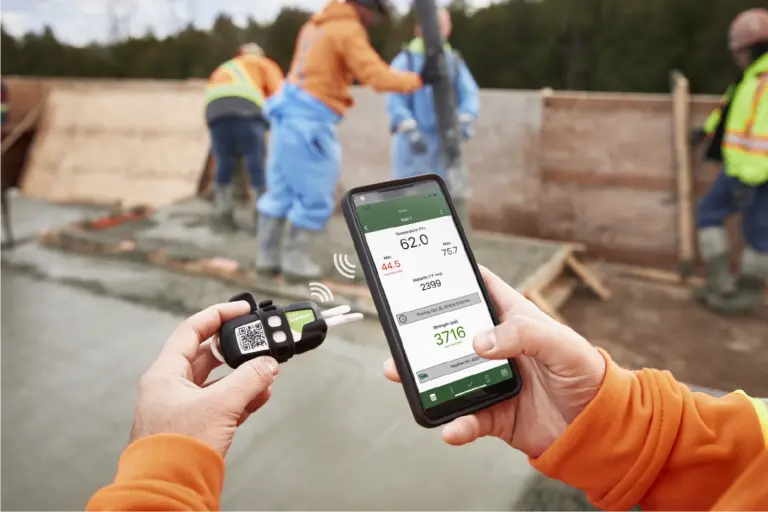Contractors are always on the go — bouncing from jobsites, the office and everywhere in between. Time doesn’t stop on the job, and a project’s deadline won’t freeze to push paperwork. With new innovations from software companies, contractors can bridge the gap between the office and worksite — all while keeping operations running as smoothly as possible and keeping everyone in the loop.
Move Data Center Projects Faster
“Leveraging a single software platform allows everyone to be on the same page at the same time,” says Paul McKeon, CEO of B2W Software. “Field staff who track production, labor and equipment can also have real-time visibility into the status of equipment moves, scheduled equipment maintenance and repair and job schedules.”
McKeon went on to explain “[that] folks involved in scheduling resources have real-time visibility into equipment locations and utilization, can receive needs from job foreman that appear dynamically in the scheduling process and can see planned or emergency equipment repair that impacts schedules and equipment availability. In addition, with an event-driven alerts and notification engine, specific events can create instant awareness that drives smarter and more informed decisions. For example, if a safety form is completed and indicates there was an injury, then one or several team members or executives can receive an instant notification via text or e-mail.”
Times are changing in the construction industry, and companies are finding that traditional spreadsheets may not be working for them anymore. Software programs can be tailored to meet the specific needs of a company to help run their business effectively and obtain a competitive edge.
“Like any business, utility contractors need applications that help them manage basic business processes such as accounting, payroll, human resources and document management,” says Wayne Newitts, marketing director for Dexter + Chaney. “They also need applications specific to the needs of their industry such as job cost management, project management, equipment maintenance and management and other operationally-oriented applications. In many cases, a contractor will use an accounting application for basic business management, then either manage operations using separate applications (or simply spreadsheets) that do not talk to one another. More advanced organizations invest in enterprise systems that provide a platform containing business and operational applications that work together to give them a better overall picture of a company’s health.”
So software sounds like a good solution, but where does a company start in implementing a program? First, it’s important to take a look at a company’s needs and objectives and develop a plan from there. Change can sometimes be a sore subject, so be sure to ease into the transition and address any concerns.
“Talk to your team about their pain points, then identify the major problems your company needs to resolve in order to reach its goals,” explains Steve McGough, president and chief operating officer of HCSS. “Once you’ve figured out what you want the software to do for you, talk to someone from a company that’s comparable in size and industry segment to see if their business objectives are similar to yours and what they used to reach those goals. Word of mouth, personal and business recommendations and research will help you determine which software system is right for you.”
With options from companies such as HCSS and Dexter + Chaney to B2W Software and GPS Insight, to name a few, there are plenty of interesting solutions to fit a company’s needs. The best way to find the right program is to take different ones for a test drive.
“Shopping around to compare providers before making a final decision is a sound strategy,” says Jenny Malcolm, content marketing specialist for GPS Insight. “Piloting different software side by side will demonstrate which system offers capabilities that best match implementation goals, provides superlative customer service and technical support and supplies the maximum return on investment. It is strongly advised not to skip the pilot; completing that step will make sure the software doesn’t fall short of expectations.”
THERE’S AN APP FOR THAT
Aside from the ability to streamline operations among employees, mobility is a huge benefit of software. These programs allow contractors to record and pass along important information whether they’re in the office or on the go.
“Mobile technology — the tablet and smartphone specifically — is a game changer for construction, enabling employees working anywhere to capture, access and share more data and richer data in real time,” says McKeon. “Beyond simply replacing desktop solutions or paper-based processes, mobile technology provides exciting opportunities for construction companies to re-engineer processes for improved agility and efficiency.”
Telematics apps and the information they provide are helping companies keep a close eye on their vehicles and equipment to ensure these investments are properly used and maintained.
“Using a telematics system’s mobile app allows fleet management to monitor and actively manage their fleet from the convenience of their cell phone,” says Malcolm.“Having the ability to log in and see what is happening with the fleet from anywhere at any time has changed traditional fleet management for the better. Using a mobile app allows fleet professionals to view vehicle locations and current statuses, send messages straight to drivers and much more.”
The construction industry is always changing and so are companies looking to succeed. With the right software program in place, contractors can push on with their day armed with the resources needed to record important information, connect with home base and position themselves ahead of their competition.
“Job seekers look for companies at the top of their game. Companies that use the right tools to win the most jobs and companies that manage their work in a proactive — not reactive — way,” says McGough. “The companies that are successful have good people on their teams, and these companies usually use construction software to beat out their competition. Take advantage of what’s out there right now in construction technology, and your company may go from being competent to being an industry leader.”







